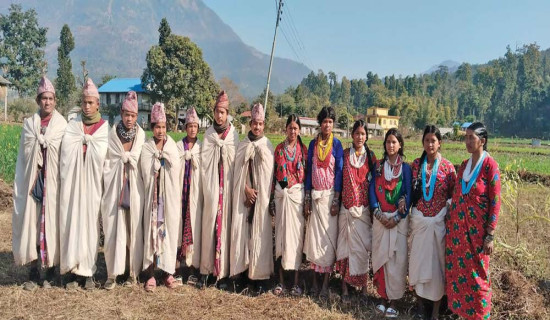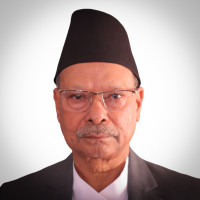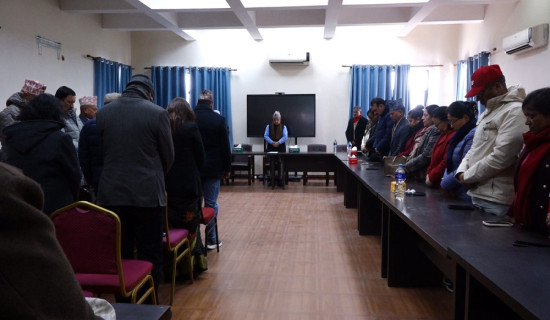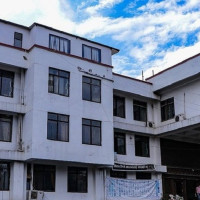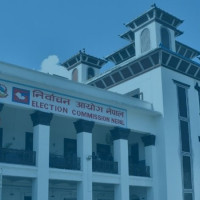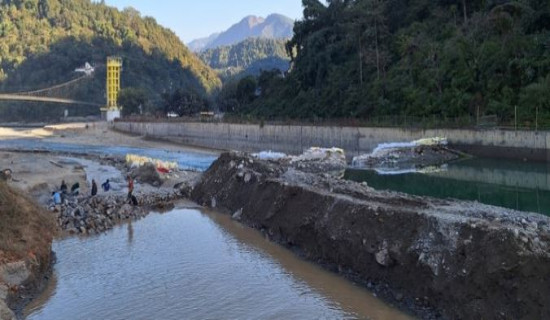- Sunday, 11 January 2026
Nepali Athletes In Summer Olympics
Sports lovers will hardly get time to rest after savouring the drama, heartbreaks and triumphs during the Twenty20 Men’s World Cup, Euro Cup 2024, Copa America, and Wimbledon Tennis.
Two weeks later, their attention, again, will be drawn towards the global sports carnival, the Olympics for 17 days. Paris, the capital city of France, is organising the 33rd edition of the Olympics from July 26 to August 11. Around 10,500 athletes from 206 National Olympic Committees (NOCs) will compete in the 45 sports disciplines.
All NOCs represent independent national states and several independent territories, protectorates and special geographical areas.

As a part of the Olympic Movement, the International Olympic Committee (IOC) brings together the world’s athletes at the Olympic Games. Nepali athletes, as members of the IOC, also get to be part of the movement.
The modern Olympics, as we know them today, are the largest sports event on the planet, featuring both summer and winter sports. Thousands of athletes worldwide participate in a wide range of competitions. The first modern Olympics took place at the Panathenaic Stadium in Athens in 1896.
Nepal, however, made its Olympic debut after 68 years from the Tokyo Games in 1964. During the 18th edition of the Summer Games, Nepal was represented by two athletes and four boxers.
Performance
Till the Tokyo Olympics 2020, 90 athletes (88 in summer, 2 in winter) have already represented Nepal. Seven athletes (3 men and 4 women) are participating in the upcoming Paris Olympics.
However, Nepal’s performance has remained dismal throughout. Though winning medals in the Olympics has been a distant dream, Nepali athletes have taken the most out of their participation by gaining experience of playing on the global stage.
It’s not that Nepal has not won a medal in the Olympics. Nepal won the bronze medal in the 1988 Seoul Olympics. But it was in the exhibition match of Taekwondo where Bidhan Lama pocketed the bronze. As it was an exhibition match, the medal was not counted as an official.
Nepali athletes have competed in Boxing, Swimming, Athletics, Shooting, Judo, Taekwondo, and Weightlifting. Nepal will also debut in Table Tennis and Badminton in the upcoming summer games.
The largest number of Nepali athletes participated in the Summer Games held in China in 2008. Eight players took part then.
Athletics, boxing, shooting, and swimming players have the most opportunities to participate in the Games. Including the 2024 Olympics, athletics has 37, swimming has 16, boxing has 15, and shooting has nine athletes taking part in the global sporting festival.
Despite all this, most Nepali players have not been able to advance past the first round in the Olympics. Setting a new national record is the best performance Nepali athletes have achieved so far.
Exit from the preliminary round has been our fate except in some instances in boxing events.
Based on information from Olympiandatabase.com and Olympedia.com, which are comprehensive internet sources for the Olympic Games and the Olympic Movement, only a few Nepali boxers have advanced past the first round. However, they have managed to secure direct entry to Round 2.
Of the four boxers representing Nepal in the 1964 Olympics, Nam Singh Thapa Magar, Ram Prasad Gurung and Om Prasad Pun made direct entry to Round 2. The only player to compete in the Round 3 is Om Prasad Pun. No Nepali boxers have been able to play in Round 3 since then.
Om Prasad progressed to Round 3 after his Ethiopian opponent Tadesse Gebregiorgis was disqualified, but was knocked out by Tunisian Habib Galhia.
Likewise, Manoj Shrestha qualified directly for Round 2 in 1980 and 1984, but he withdrew from both events, depriving him of the opportunity to become an Olympian.
Other boxers Rabi Raj Thapa (1980), Umesh Maskey (1984) and Ram Bahadur Giri (1988) also directly qualified for Round 2 but could not progress.
Bishnu Bahadur Singh is the only Nepali boxer who marched into Round 2 by winning his Round 1 match. Before losing his second-round match against United States’s Arthor Johnson in Referee Stop Contest in men’s flyweight, he defeated Sixto Vera of Paraguay by 5-0 in the first round in the 1988 Olympics.
So until now, Bishnu is the only Nepali athlete to win the first-round match in Olympics.
Performance-wise, Nepali athletes did not make headlines. However, swimmer Gaurika Singh became the talk of the world during the 2016 Olympics as the youngest athlete to participate in Rio, Brazil.
Hard time in qualifying
Forget about the performance in the Olympics, Nepali players have a hard time even qualifying in the global sports festival. The majority of players have to rely on universality and wild card quotas. So far, only three players have been successful in qualifying for the Olympics through the qualification events.
Taekwondo stars Sangina Baidya and Deepak Bista have made the country proud by winning their berths in an Olympics qualifier event.
Baidya is the first Nepali player to qualify for the Olympics. She booked the 2004 Athens Olympic Games Ticket by winning a bronze medal in the Asian Qualifying Championship held in Bangkok, Thailand.
After suffering a defeat at the hands of a Chinese player in the semi-finals, Sangina beat her opponent from Jordan in the flyweight fight to earn tickets to Athens.
Likewise, another taekwondo ace, Deepak Bista became the second Nepali to qualify for the Olympics held in Beijing in 2008. Nepal’s torch bearer of the Beijing Olympics, Bista qualified after winning the bronze medal in the Asian Qualifying match held in Vietnam in November 2007.
Both Baidya and Bista headed for a quick end in their Olympic matches.
Table Tennis player Santoo Shrestha became the third Nepali to qualify for the Olympics as he booked the ticket to Paris Olympic 2024 after winning the South Asian Qualification Tournament held in Kathmandu recently. He qualified for the men’s singles table tennis after defeating his compatriot Samyog Kapali in the final of the tournament.
Systematic planning
As Santoo’s performance in Nepal’s 15 appearances at the Summer Olympics is still to be watched over, the hope of better performance from Nepali athletes is still an elusive dream for Nepal.
Looking at the lack of coordination and commitment among sports stakeholders, political influences within sports associations and poor infrastructure indicate a challenging future for Nepali sports.
It is the dream of every athlete to participate in the Olympics, as their lives feel incomplete without this experience. However, achieving this dream requires long-term systematic training, investment, and exposure.
Until now, the nation has relied solely on the individual abilities and hard work of the athletes, along with short-term foreign training, for Olympic qualification.
So, it's never too late for the National Sports Council, Sports Associations and Nepal Olympic Committee to collaborate on long-term, systematic, and scientific planning for sports development.
(Joshi is Associate Editor at TRN.)



